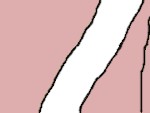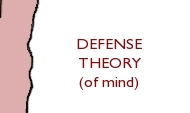|
If we conceive of writing and genre as technologies, then we must also acknowledge their discursive strictures, the ways in which those who govern such strictures author and render others passive. This webtext and the processes and standards-meeting that surround it have informed my choices, have shaped my conceptions of self and audience: I have been authored, despite my attempts to author. Certainly, author(ed)ship isn't solely a concern for autistics, but for any and all students, mainstream and non. And, while the purpose of this piece is not to decry the weird neurotypical affirmation of the thesis statement (or is it?), it certainly does question why these things are so. Of course, I'm an unempathetic narcissist who lacks a theory of mind. Perhaps I need standards-meeting better explained to me? According to my fourth-grade teacher**, I'm an (anti)intertextual text who's missing several pages. Within this framework of author(ed)ship, we must also consider the dangers of invisibility and passing. Compositional convention seems not just a matter of relegating autistic rhetorical conventions to the margins, but erasing them. And, while there certainly is value in learning to navigate various discourse communities (for lack of a better term—I don’t like discourse communities because people who write about discourse communities often draw lots of circles, and this annoys the autistic me, because discourse communities shouldn’t look like circles), it seems that autism isn’t academically recognized as a valid discourse, as a rhetoric, as a way of knowing. We long to cure autistics rather than value them and what they have to say. Simply put, this binary needs to change. |














